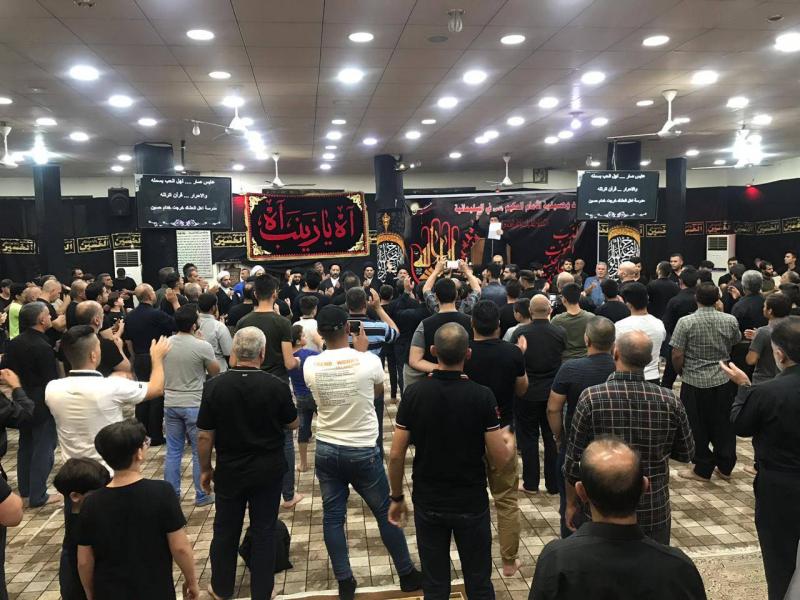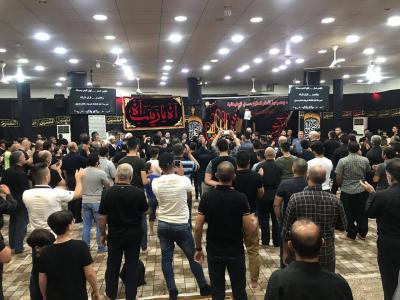The rituals and commemorations of Ashura in Iraq vary from one governorate to another, but in all cases, the event of Karbala has become a symbol of liberation. Regardless of differing religious beliefs and sects, the majority of Muslims unite to commemorate the martyrdom of Imam Hussein. Sheikh Ismat Al-Khaqali, the Imam and preacher of Imam Al-Hakim Mosque and Hussainiya in Sulaymaniyah, says that "these ceremonies are held annually in the city of Sulaymaniyah and at Imam Al-Hakim Hussainiya since it was built in 1996 to host mourning ceremonies and rituals for Imam Hussein," noting that "participation is not limited to the Shia community, as Sunnis, Sabians, Yazidis, and various components of the population also take part."
He added that "holding these ceremonies and rituals in Sulaymaniyah is a testament to the unity of the Iraqi people," pointing out that the rituals proceed smoothly with the participation of different groups within the Iraqi society. He called for emulating the thoughts and principles of Imam Hussein that advocate for peace and unity.
He explained that "the gatherings begin on the first day of Muharram and continue until the tenth through various rituals and traditions, including reading the Quran, giving the Hussein sermon, reciting Hussein poetry in both Arabic and Kurdish, and distributing food." Al-Khaqali appreciated "the cooperation of the provincial administration and security forces, which have provided security for the mosque since the first of Muharram, and the collaboration of everyone in holding the gatherings for Imam Hussein, peace be upon him, in this mosque."
Similarly, Muhammad Ahmed, one of the citizens participating in the Hussaini gathering, confirmed in a statement to Shafaq News Agency that "despite the variations in the rituals of commemorating this occasion among the provinces, the event of Karbala has thus become a point of convergence and unity among the social segments, as everyone agrees on the injustice suffered by the Master of the Martyrs of Paradise. Here in Sulaymaniyah, the rituals of commemorating the Hussein events begin on the first day of Muharram and continue until the tenth." He added, "There is no doubt that the activities and rituals differ from those in the central and southern provinces of Iraq, yet the Ashura rituals are present in this blessed mosque." He further noted that "the nights of Muharram unite everyone, and the uprising of Imam Hussein is a humanitarian and reformative revolution that came to change the situation for the better and uplift humanity as God intended."




